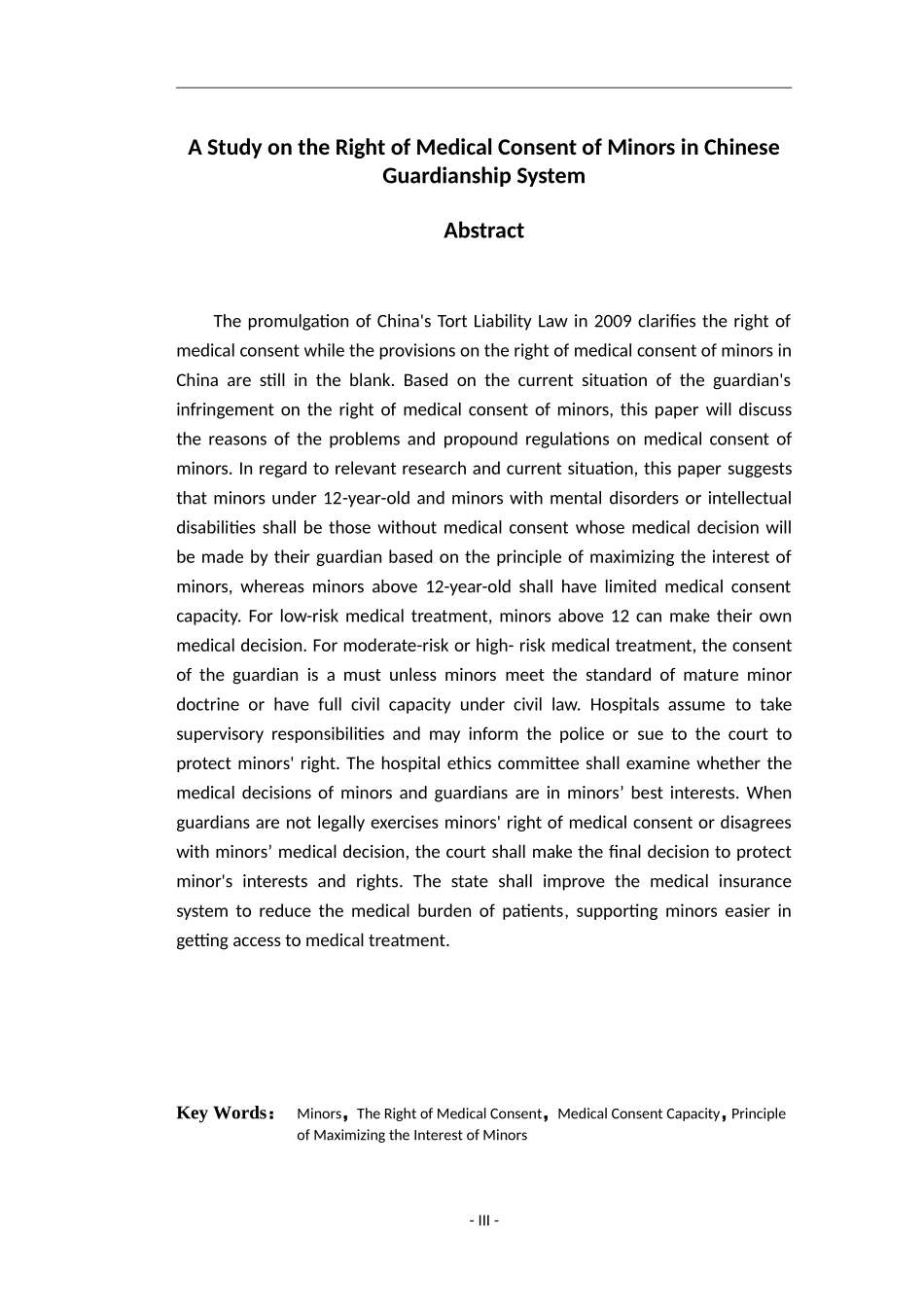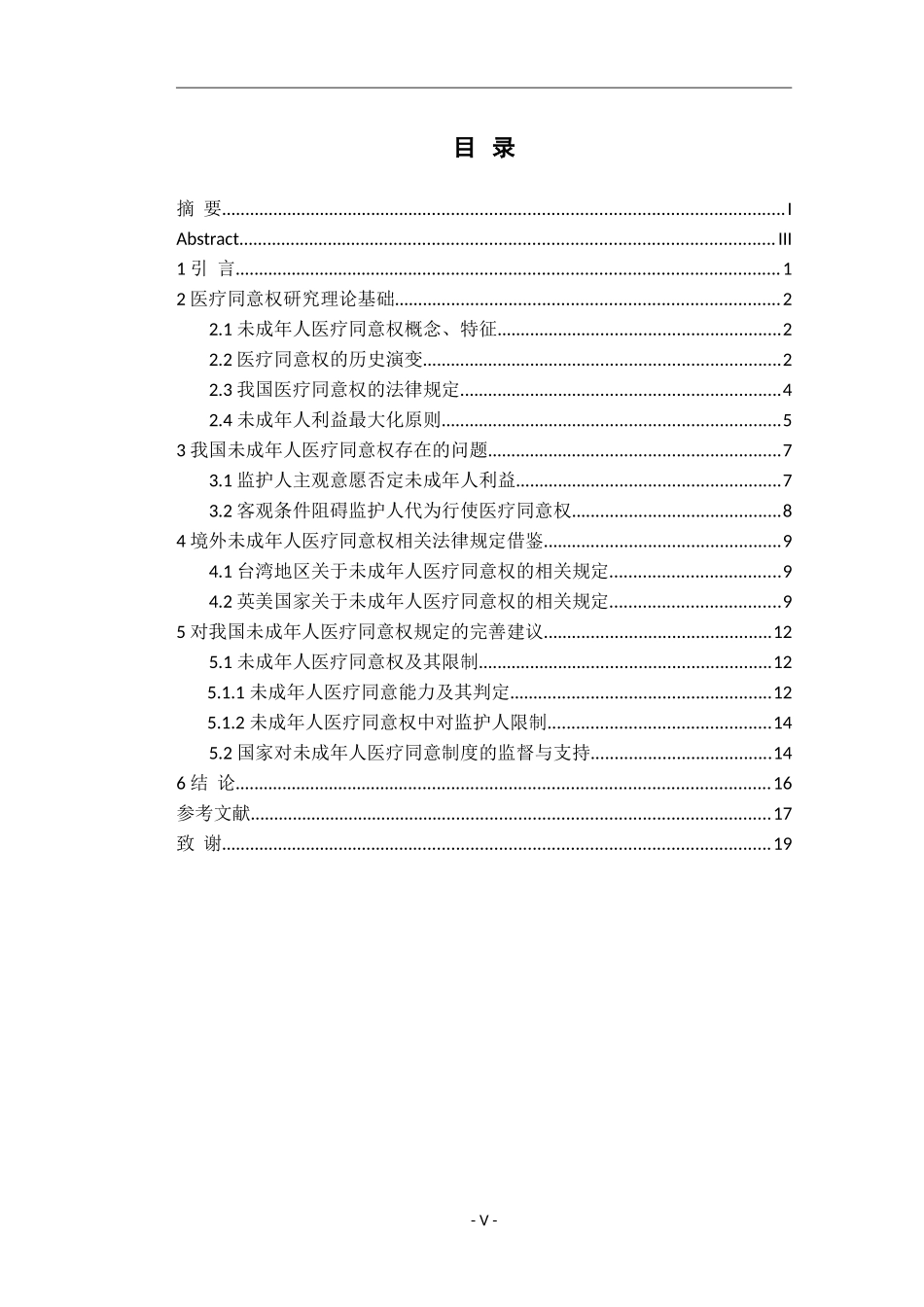摘 要我国 2009 年《侵权责任法》的颁布明确了患者的医疗同意权,在一定程度上完善了我国法律对于患者医疗同意权的有关规定,但我国目前关于未成年人医疗同意权的相关法律规定仍处于空白。基于实践中监护人对未成年患者医疗同意权的侵害现状,本文探讨我国监护制度中未成年人医疗同意权存在问题的主客观原因,在此基础上提出建立未成年人医疗同意权行使制度,建议规定 12 岁以下未成年人以及存在精神或智力障碍的未成年人为无医疗同意能力人,由监护人做出符合其利益的医疗决定;12 岁至 18 岁的未成年人为限制医疗同意能力人。限制医疗同意能力人对低风险的医疗行为可自行决定;对于中度风险的医疗行为,该年龄段的未成年人若自身成熟性达到标准,可自行做出医疗决定,反之需获得监护人的同意;对于高风险的医疗行为,该年龄段的未成年患者不具备医疗同意能力;民法规定的完全民事行为能力人除外。医院在未成年人医疗同意权行使制度中承担监督责任,医院伦理委员会需审查未成年人及其监护人的医疗决定。若其医疗决定不符合未成年人利益最大化原则,医院可以告知警方或法院,保障未成年人的医疗同意权和生命健康权。当监护人怠于行使未成年人的医疗同意权或与未成年患者意见相左时,法院将依据未成年人利益最大化原则做出最终医疗决定。国家也可完善医保体系减轻患者医疗负担,支持未成年人医疗同意权行使制度的建立。- I -关键词: 未成年人,医疗同意权,同意能力,未成年人利益最大化原则A Study on the Right of Medical Consent of Minors in Chinese Guardianship SystemAbstractThe promulgation of China's Tort Liability Law in 2009 clarifies the right of medical consent while the provisions on the right of medical consent of minors in China are still in the blank. Based on the current situation of the guardian's infringement on the right of medical consent of minors, this paper will discuss the reasons of the problems and propound regulations on medical consent of minors. In regard to relevant research and current situation, this paper suggests that minors under 12-year-old and minors with mental disorders or intellectual disabilities shall be those without ...


